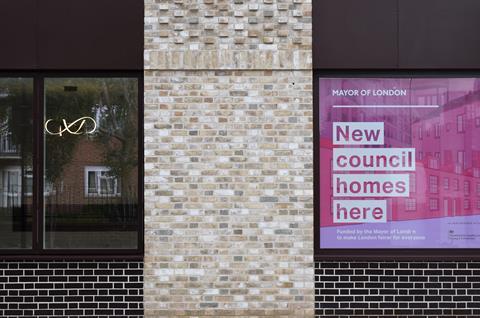Current proposals under the government’s Fair Funding Review 2.0 could push local authorities in the capital towards bankruptcy, says London Councils coalition
London boroughs could have to bridge a cumulative funding gap of £4.7bn between 2025 and 2029, London Councils has warned.

The cross-party group predicted that the current proposals under the government’s Fair Funding Review 2.0, which seeks to redistribute central funding for local authorities, would significantly reduce London boroughs’ collective share of government funds.
With final decisions over the reforms expected in the coming weeks, London Councils said authorities in the capital will have to make cuts to local services while a growing number of boroughs will require emergency borrowing to avoid bankruptcy.
According to the group’s findings, London boroughs must make savings of around £600m in this financial year (2025/26) to close the gap between available resources and spending on services. This is in addition to £400m of Exceptional Financial Support (EFS) received by seven boroughs, which brings the annual funding gap for London local government to £1bn for the first time.
This figure is expected to increase by around 50% next year to £1.5bn in 2026-27. London Councils said this is partly owing to the potential impact of the Fair Funding Review 2.0 as well as the “relentless increase in demand for homelessness support and adult and children’s social care.”
London Councils has called on the government to ensure the funding reforms fully account for deprivation and housing poverty.
While it plans to use the Index of Multiple Deprivation (IMD) to measure deprivation, London Councils argues this does not adequately reflect housing poverty at present, where one-in-four London households live in poverty when housing costs are taken into account — the highest poverty rate in the country.
Six London boroughs currently balance their core budgets via funds from the EFS scheme, with one reliant on this support to balance its Housing Revenue Account.
London Councils suggests the number of local authorities requiring EFS could rise to 17 in 2028 – half of boroughs in the capital.
In the four-year period from 2025/26 to 2028/29, the funding shortage is anticipated to reach £4.7bn based on current trends in service demand and expected government funding levels.
Claire Holland, chair of London Councils, said: “Boroughs will continue working with the government to seek a solution that puts the sector back on a sustainable footing, after years of uncertainty and financial instability.
”This is critical to us delivering on our shared priorities, including building homes, creating jobs and driving economic growth.”











No comments yet